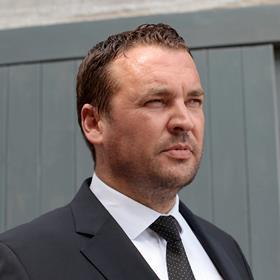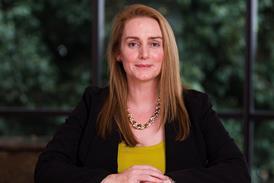After a tumultuous 2020, property’s leading figures share their hopes and expectations for 2021 as the year gets off to a rocky start with yet another lockdown.


Andrew Jones
Chief executive, LondonMetric
My overriding hope is that we can see normality resume quickly. However, I believe the tectonic plates have shifted.
Acceleration of macro trends from the pandemic will continue and falling occupational demand will expose chronic oversupply in many real estate sectors, particularly in retail and possibly hospitality, as well as temper any optimism for offices.
Conversely, logistics, healthcare and grocery will continue to perform well, supported by favourable dynamics and capital inflows. Logistics will significantly outperform, assisted by high warehousing demand as consumers shift further online and corporates model logistics strategies towards ‘just in case’. With constrained supply, rental growth is inevitable particularly in urban locations where warehousing continues to lose out to alternative uses.
Although logistics yields have compressed to record lows, I expect pricing tension to persist given rental growth expectations. While great for our portfolio values, this tension does make it harder to deploy further capital.
My other hope is that we continue to find accretive acquisitions, either in the direct real estate market or corporately.
Soumen Das
Chief financial officer, SEGRO
In 2020, the role of warehouse space within our critical national infrastructure became much better understood. I hope 2021 will see innovative thinking on how to deliver more of the space we need in and around UK cities to power the economic recovery.
The co-location of industrial and other uses, including residential, will become more common as we look at ways to intensify land use. In 2020, we began preparation work at SEGRO Park Hayes – the first large-scale mix of housing and industrial space in the UK – and we were selected to bring forward a pioneering underground logistics scheme in Paris.
These developments are a sign of things to come. Repurposing of existing space to industrial may become viable in some locations. These innovations will help developers meet demand but the design and specification of warehouse space will evolve too.
There will be more emphasis on using data to inform how we design and build space. More creative thinking will be used to create zero-carbon space and environments that enhance wellbeing, factors which are becoming key differentiators for new-build and refurbished assets.

Mark Quinn
Chief executive/chairman, Quinn Estates
There’s going to be a lot of opportunity. You’re going to have a repricing in the property market, particularly in London, less so in the home counties. We’ve never really enjoyed the same surge that London has in pricing, so the home counties won’t experience such an extreme drop.
There’s the possibility of a recession but recessions also create huge opportunity. I think the government seems determined to build their way out of it, which is exciting. This is the best time to build. It’s cheaper in a recession and it creates jobs and tax. What the government does will be important but it’s also up to us, as an industry, to help the country rebuild and make the economy grow.
Melanie Collett
Head of UK asset management, Aviva Investors
We are unlikely to forget 2020 in a hurry. My hope is that we see some stability in the market as we navigate through the first quarter of 2021. The future of the office and the evolving retail landscape will be particular focuses for the industry and we’d hope that, with the rollout of a vaccine, both will be able to operate in a more normal way.
Embedding environmental, social and corporate governance (ESG) across real estate activities is a significant exercise, as well as a terrific opportunity. We’re delighted to have Ed Dixon leading this process across our Real Assets business to ensure we meet climate targets, decarbonise our portfolio and support wider public policy commitments. This is a critical area of focus for our business and we will be looking to use the good fundamentals that were established over the course of 2020 as a springboard.
The Covid-19 crisis has reinforced the need for robust and accurate data in real estate. Operating models that have this requirement front and centre will put firms in a strong position to navigate risks, as well as identify – and take advantage of – opportunities.
Continue to part two here
Forecast for 2021: looking ahead with hope
- 1
 Currently reading
Currently readingForecast for 2021: looking ahead with hope (part one)
- 2
- 3
- 4
- 5
- 6
- 7
- 8
- 9
- 10
- 11
- 12
- 13
- 14
- 15
- 16
- 17
- 18
- 19
- 20
- 21
- 22
- 23
- 24
- 25
- 26
- 27
- 28
- 29
- 30
- 31
- 32
- 33
- 34
- 35
- 36
- 37
- 38
- 39
- 40
- 41
- 42








































































No comments yet